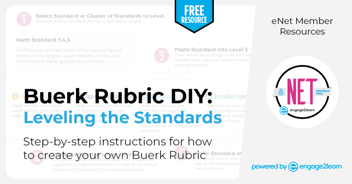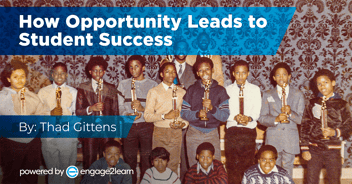The Four Tendencies and Training | engage2learn


By Jamie Zertuche and Ashley Guadarrama
You are about to embark on a training journey! This training will be different. It will not be as teacher-directed as most training environments. You will be asked to self-assess, set goals, take risks, and reflect throughout the training. It is important to have a growth mindset and exercise autonomy.
Did you know that understanding your tendency can help you predict your training experience?
Did you know that understanding your tendency can help you predict your training experience? Click To TweetHow would you answer the question, “How do I respond to expectations?” The Four Tendencies may help you uncover how you feel about new situations.
If you’d like to find out if you’re an Upholder, a Questioner, an Obliger, or a Rebel, take this quiz.
The Four Tendencies
I’m an Obliger
The Obliger tendency makes up 41% of people. If you aren’t one, you are probably sitting next to one. Obligers readily accept what is asked of them and easily meet deadlines and say yes to requests. Other tendencies do well with the help of this tendency to stick to the task and get things done. They put others before themselves and are often described as people pleasers.
I’m an Obliger. The Obliger tendency makes up 41% of people. Click To TweetStrengths
- Good boss, responsive leader, team player
- Feels great obligation to meet others’ expectations
- Responsible
- Willing to go the extra mile
- Responds to outer accountability
Challenges
- Susceptible to overwork and burnout
- May show the pattern of Obliger-rebellion
- Exploitable
- Has trouble saying no or imposing limits
Questions/Thoughts you may have in Training
- “I don’t know what to do.”
- “How do I do this?”
- “What am I creating and when is it due?”
- “What are your expectations for me?”
Strategies that help Obligers Succeed in Training
- Accountability: You will be asked to set goals, create a to-do list, and will be given deadlines for your tasks.
- Monitoring: Formative Feedback will be offered often during the days of training.
- Other people: You will be part of a team who will work together to collaborate, divide tasks, and hold each other accountable to the work.
- Rewards: During training, we love to celebrate growth throughout our time together.
I’m a Questioner
The questioner tendency makes up 24% of people. Questioners love information, data, and efficiency. They question outer expectations, not as a way of rebellion, but to ensure that what they are being asked to do is not arbitrary or ineffective. They can turn their outer expectations into inner expectations if they agree with the intent and impact of the actions. They are constantly researching and may be the friend who is always sharing interesting articles for your reading pleasure.
However, with their strength of constantly searching for meaning and relevance comes a weakness of impatience and inability to accept closure on unsettled matters or unanswered questions.
I’m a Questioner. The questioner tendency makes up 24% of people. Click To TweetStrengths
- Data-driven
- Fair-minded
- Efficient and effective
- Willing to play devil’s advocate
- Inner-directed
- Unwilling to accept authority without justification
Challenges
- Impatient with what he or she sees as other’s complacency
- Can suffer from analysis-paralysis
- Unable to accept closure on matters that others consider settled if questions remain unanswered
- May refuse to observe expectations that others find fair or at least non optional (ex. Traffic regulations)
- May resist answering others’ questions
Questions/Thoughts you may have in Training
- ““How will this help my students?”
- What data do you have to support the learning framework and best practices?”
- “How is this applicable to my subject area?”
Strategies that help Questioner Succeed in Training
- Clarity: Training expectations and purpose will be explicitly explained and justified.
- Monitoring: You will create a to-do list of tasks that you can check off when complete that aligns with our schedule of deadlines in order to self-monitor.
- Distinctions: You will be provided an opportunity to set learning goals and decide how you would like to accomplish those goals during your work time. Customize and see what works for you!
- Loophole-Spotting: There will be large chunks of time where you will have choice in how you learn. You will be provided with resources and formative assessments to help you maximize how your time is being spent.
I’m an Upholder
The Upholder tendency makes up 19% of people. Upholders can be great teammates, colleagues, bosses, and friends. They don’t need reminders or monitoring. Their strength of self-motivation and meeting inner and outer expectations helps with moving forward on implementing big ideas. They are independent and reliable.
However, with this strength comes a weakness of compliance without heart. In the classroom setting, an Upholder teacher may implement with fidelity but without a heart for the process.
I’m an Upholder. The Upholder tendency makes up 19% of people. Click To TweetStrengths
- Self-Starter
- Self-motivated
- Conscientious
- Reliable
- Thorough
- Sticks to a schedule
- Eager to understand and meet expectations
Challenges
- Often struggles when plans or schedules change
- Uneasy when rules are ambiguous or undefined
- Impatient when others need reminders, deadlines, supervision, or discussion
Questions/Thoughts you may have in Training
- “I don’t understand why this is important.”
- “How will I finish my tasks if I am part of a team?”
- “I have always planned a certain way, why should I change it?”
- Strategies that help Upholder Succeed in Training
Strategies that help Upholder Succeed in Training
- Scheduling: You will set goals for the training and be given deadlines for tasks.
- Clarity: Training expectations will be explicitly explained and justified.
- Monitoring: You will create a to-do list of tasks that you can check off when complete.
I’m a Rebel
The rebel tendencys makes up the smallest portion of the population at 17%. They do not conform to the norms of society and are free spirits and independent thinkers. They resist all expectations; inner and outer. They like freedom and want to make their own decisions on what, when, and how they do things. Rebels do things because they want to do them. Giving them choice and freedom is key to make a successful rebel. Because rebels are independent and creative thinkers, they tend to resist or are uncooperative when asked to complete a task.
I’m a Rebel. The rebel tendency makes up the smallest portion of the population at 17%. Click To TweetStrengths
- Independent
- Able to think outside the box
- Unswayed by conventional wisdom
- Willing to go his or her own way, to buck social conventions
- In touch with his or her authentic desires
- Spontaneous
Challenges
- Likely to resist assigned tasks
- Has trouble accomplishing tasks that need to be done consistently, the same way, every time
- Acts as though ordinary rules don’t apply
- Restless
- Struggles with routines and planning
Questions/Thoughts you may have in Training
- “Why am I here?”
- “What will happen if I don’t participate?”
- “I know what works and this won’t work for my students.”
- “I’m going to sit here and work on my own lesson planning.
Strategies that help Rebel Succeed in Training
- Identity: You will be given an opportunity to self-assess and determine your preferred learning style. You can also assess alignment between the learning framework and current practices. What wonderful things are you already doing in your classroom? How can you incorporate more student-centered and driven learning? Be creative!
- Clarity: Training expectations and purpose will be explicitly explained and justified however, in using a framework you will have many opportunities for creativity in your design and facilitation i.e. developing formative assessments, determining relevant and authentic audiences, designing challenges for your learners, etc.
- Convenience: You will be supported with all the resources you need to learn how and when you want. We encourage you to explore your own resources as well!
- Other People: You will be in a team setting but are not required to choose the same tasks/learning options as your peers. You will set your own task list.
What is your Tendency? How will you use it to your advantage during training or professional development?



